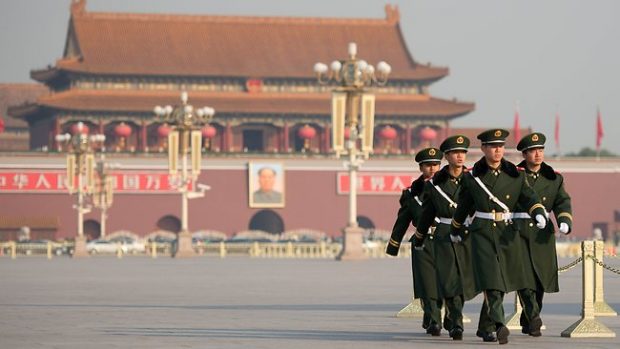
China: An Unnoticed Giant
The relations between China and South Korea are bad. In March a poll indicated China overtook Japan as Korea’s most disliked foreign nation. The reason is simple: the South Korean decision to deploy the THAAD missile defense system annoyed China which reacted with introducing the “unofficial” but biting sanctions against South Korean companies. This is the worst situation since 1992.
But hang on, why do we mention 1992 as a starting point? Is not it the case that for millennia Korea and China have lived side by side, maintaining sometimes uneasy but always close relations?
Yes, the history of relations between the two goes back a few thousand years, and it will be only a major exaggeration to say the Korean state emerged and grew in the giant shadow of China, under its immense influence. However, after the Opium Wars of the 1840-60s, China became a victim of Western imperialism and disintegrated in the collapse and chaos, only to be reunited by Mao’s Communists in 1949 as a poor authoritarian country.
Throughout the Chinese “century of crisis” Koreans lost much of their interest in Chinese culture. Gone were the times when a perfect command of written Chinese was a major prerequisite for a successful career. From the 1890s on, educated Koreans were obsessed with the West, which came to be seen as an embodiment of progress, while China, especially classical China of Confucian classics, became a symbol of conservatism and backwardness, a country few were seriously interested in.
Things became more complicated in 1948-49 when both Korea and China were divided between the communists and right-wing nationalists. In Korea the nationalists took a poorer part of the country which, however, had a larger population, but in China the division was very uneven: the nationalists managed to cling only to a small island province of Taiwan, while nearly all China’s land and population after 1949 were under control of the victorious communists.
The division led to a peculiar situation: Communist China and Communist North Korea established formal diplomatic relations, but Mao’s China did not recognize the Republic of Korea. The Republic of Korea, too, maintained diplomatic relations only with the nationalist government in Taiwan, formally supporting its improbable claim of being the only legitimate government of all of China.
Until the late 1980s, South Korea behaved as if “Red” China did not exist. Even President Nixon’s famous 1972 trip to China and subsequent improvement of Sino-American relations (actually, as a part of their de facto alliance against Russia) failed to impact the position of Seoul which steadfastly clung to the “One China principle,” the “China” in question being Taiwan, of course.
But times were changing. In the 1960s and ‘70s, under President Park Chung-hee’s dictatorial but efficient rule South Korea transformed itself into a booming economy. Under Deng Xiaoping’s China, to a large extent, repeated what South Korea did a decade or two earlier, also succeeded economically under its own variety of a “developmental dictatorship” (communist in rhetoric and government structure, unsurprisingly capitalist in economic policy). In the new world, old feuds of the Cold War ceased to matter while market size began to matter enormously.
In August 1992, China (the People’s Republic of China, that is), established formal diplomatic relations, to the great dismay of both Taiwan and Pyongyang. The results were impressive: in the early 2000s China overtook the U.S. and Japan as Korea’s largest trading partner. It also became a major destination for outbound tourists and a major source of Korea’s inbound tourism (last year, 48 percent of visiting tourists came to Korea from China). Many Koreans ― largely businesspeople and technicians ― moved to China, while even a larger number of Chinese nationals ― largely unskilled and semi-skilled migrant workers ― moved to Korea.
In one regard Korea has differed from other countries of the region: it did not see the rise of China as a challenge or security problem. Since 1992, political conflicts and tensions were rare, and most Koreans looked on China lightly, perceiving it as a producer of low-priced consumer goods, a large playground and provider of cheap labor. The thought of possible political complications seldom, if ever, crossed the minds of Koreans, many of whom, frankly, did not take China too seriously.
But now things are changing ― for the time being, at least. In a sense, the THAAD crisis made Koreans aware that a powerful and pushy aspiring superpower happens to be located nearby, and the relations with this superpower are not going to be easy. Surprisingly, for many Koreans it looks like revelation.



